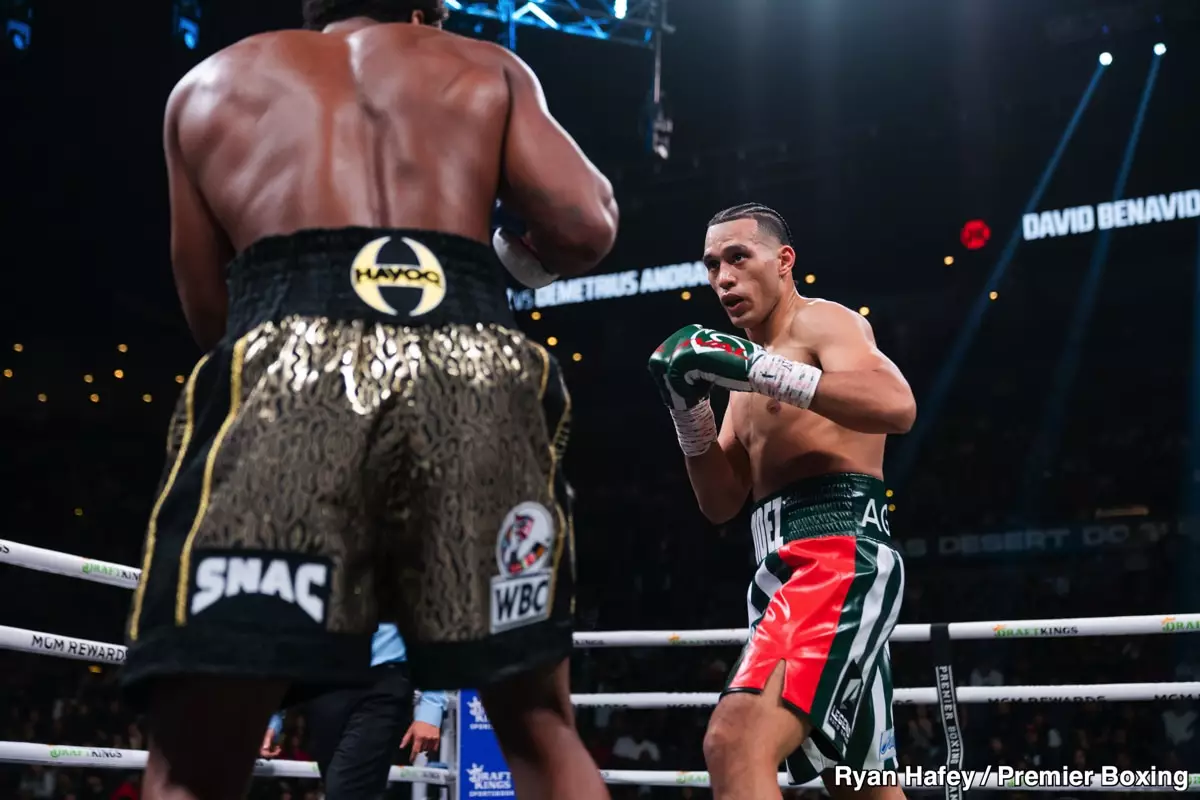In the landscape of professional boxing, few narratives capture attention like a revenge match. David Benavidez’s recent declaration of his willingness to face Terence Crawford at super middleweight serves as a noteworthy subplot in a larger drama involving championship aspirations and personal rivalry. Benavidez’s motivation stems from the loss suffered by his brother, Jose Benavidez Jr., to Crawford six years ago, adding an emotional weight to their potential encounter. This desire for redemption may resonate with fans who appreciate the underlying currents of personal stakes in sports.
Crawford has aggressively pursued a high-profile bout with Canelo Alvarez, consistently calling out the Mexican superstar during interviews. Despite his efforts, including the representation of Turki Alalshikh in negotiations, the match remains elusive. This relentless quest could be interpreted as both aspiration and frustration, highlighting the complexities of securing marquee matchups in the boxing world. However, the scrutiny surrounding Crawford increases as he remains unwilling to step up to 168 pounds to face formidable middleweights like Benavidez, David Morrell, or Christian Mbilli. This hesitance raises questions about Crawford’s willingness to engage in high-stakes fights that could enhance his legacy.
Crawford’s reluctance to tackle strong contenders before stepping up to challenge Canelo suggests an air of entitlement. Critics argue that his resume lacks the high-caliber opponents typically expected before pursuing a title fight in a higher weight class. Benavidez’s comments regarding Crawford’s record emphasize this sentiment, pointing out that his only noteworthy victory came against an already diminished Errol Spence. Such criticisms call into question the legitimacy of Crawford’s claims as one of boxing’s elite if he is not willing to confront top-tier competition at 168 pounds.
Interestingly, fan reactions to Crawford’s situation present a paradox. Many supporters advocate for his chance to contest Canelo without engaging with Benavidez. They feel that based on his 16-year professional journey, Crawford should be afforded opportunities to ascend divisions without the obligatory trials faced by lesser-regarded fighters. However, this perspective, while understandable, overlooks the essential boxing principle of meritocracy. If a fighter’s record is predominantly filled with past-prime opponents, the merit of a title shot, especially at a higher weight class, becomes contentious.
As it stands, Crawford may be positioning himself to wait for a Canelo fight in 2025, which could lead him to retirement if negotiations falter. In an era where the sport increasingly values creating thrilling matchups, the notion of Crawford turning down fights with high-caliber opponents like Benavidez or Jaron ‘Boots’ Ennis risks alienating fans who crave competitive authenticity. In a landscape where legacies are shaped by significant battles and personal rivalries, Crawford’s strategy may require recalibration to avoid losing relevance in an ever-evolving sport. As time progresses, one can only speculate whether Crawford will seize the moment or if, instead, his path will lead him into obscurity, disconnected from the very essence of boxing competition.

